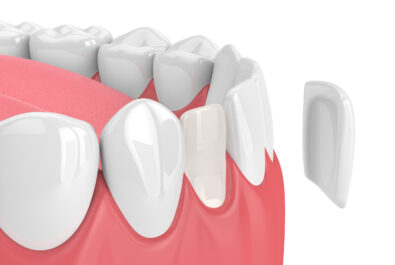Have you ever wondered if there’s some sort of secret formula to follow to keep you out of our chair for restorative dentistry? Perhaps you are curious about ways to avoid oral pathology – or the need for oral disease care – but you assume everyone’s mouth is simply something that evolves based on heredity. While your genes certainly play a role in your oral health, you can do a lot to protect your mouth by scheduling an oral examination. Wondering what’s so amazing about a checkup and how it may keep your smile healthy for many years to come? Learn more with the following quiz:
Good Daily Hygiene: Helping You Maintain Your Smile
Sometimes you break a tooth quite severely and it must be removed. Sometimes periodontal disease develops and you end up losing your tooth and must choose a replacement. Fortunately, we can often help you avoid problems like tooth loss and the need for prosthetics like dental implants. No, this preventive solution does not require you to make any major changes or to do anything complex. In most cases, you can avoid the development of serious problems by practicing excellent daily hygiene. Pretty sure you’re doing everything right? Check your habits with the following suggestions:
Sedation Dentistry: Your IV Sedation FAQs
If you suffer from severe dental anxiety or other concerns that keep you from scheduling consistent dental visits, you may be truly excited by the benefits of IV sedation. However, if you are already uneasy about dental care, you may find that you still feel a bit on edge about your visit and likely have a list of questions about what to expect from this type of sedation. Fortunately, we would like to reassure you that choosing to enjoy extra relaxation during your visit, whether you come in for a simple appointment or complex care, is a wonderful decision. Not only will you be able to receive the care you need but you may also begin to feel more comfortable about it in general. We have gathered the following information to soothe your mind before your visit. However, remember to call and ask remaining questions, so a friendly member of our team can provide you with answers.
Blood Drive in Cerritos
Sometimes the most enjoyable event you plan is one that helps others. If you’re looking for a way to give back to the community – and the world at large – take some time to visit your local blood drive put on by the American Red Cross.
Sedation Dentistry: Your Nitrous Oxide FAQs
Have you been considering visiting us for dental care but you feel hesitant because of nerves? Perhaps you have always had comfortable procedures but there is just something about visiting a dental practice that gets you feeling a bit jittery. Rest assured, millions of people suffer from dental anxiety. Many others deal with a variety of issues that keep them from scheduling the care they need, such as a severe gag reflex or the need for extensive dental work. Whatever your concern, we often suggest nitrous oxide to calm you during your visit. Have you heard of this sedation dentistry option but you would like to know more? Look over the following and call our practice with any questions:
Dental Implants: Do You Need Bone Grafting?
Are you thinking about choosing dental implants to complete your smile in the wake of tooth loss? If so, we applaud your decision to consider this dental prosthetic solution that may last a lifetime, while offering exceptional stability. However, making this decision requires you to qualify for treatment because implants are more complex than most replacement solutions. One of the requirements includes a strong, healthy jawbone to support the implant. Fortunately, patients suffering from jawbone health problems may benefit from bone grafting, preparing them to receive implants. Suffering from jawbone deterioration and ready to learn more? Read further:
Wisdom Teeth Removal: Understanding and Preventing Dry Socket
If you have made the decision to have your wisdom teeth removed, you have made a wonderful decision to protect your long-term oral health. While recovery is typically straightforward provided that you follow our aftercare instructions, we feel strongly about ensuring you understand dry socket. This disorder is easy to prevent as long as you are aware of how it forms. By avoiding its development, you can look forward to comfortable, successful healing and a healthy smile. Learn more with the following:
Cerritos CA Resident Talent Show
Enjoy seeing your local community members give it their best shot when it comes to sharing their talents? Whether you have a hidden talent of your own or simply enjoy being wowed and entertained during a fun night out with friends a family, do yourself a favor: Call up a friend and gather up the family for this exciting night.
Oral Biopsies: A Quiz
Have you recently visited us due to a change in the lining of your mouth? Perhaps you noticed a sore or ulcer. Or, perhaps you didn’t realize anything had changed but we detected a slight abnormality during your last visit. Whatever the case, we often suggest an oral biopsy for an accurate diagnosis of what is happening in your mouth. In some cases, irritation simply occurs and the problem is completely benign. In other cases, problems like oral cancer may be presenting themselves. Fortunately, the sooner we detect a change, the greater our chance of offering effective treatment. Feeling good about early detection but a little uneducated when it comes to biopsies? Learn more with the following to set your mind at ease:
Caring For Your Dental Implants: A Quiz
Have you been looking into choosing dental implants to restore your smile by replacing your missing teeth? If so, you probably realize that implants provide an exceptional list of advantages to patients, including incredible stability, the thorough replacement of your entire tooth from roots to crown, and beautiful results that may last a lifetime. You may wonder, however, what it will take to enjoy implants that truly last and last. Fortunately, care is quite simple. To learn more about what to expect and how to provide successful daily care, test your knowledge with the following quiz:













